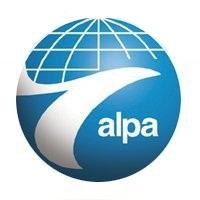Wed, Dec 19, 2012
Advertisement
More News
 Aero-News: Quote of the Day (10.16.25)
Aero-News: Quote of the Day (10.16.25)
“This integration marks a significant step forward in cockpit connectivity and safety. It is one of few solutions offered to business aviation and rotorcraft operators that p>[...]
 Airborne 10.15.25: Phantom 3500 Confounds, Citation CJ3 Gen2 TC, True Blue Power
Airborne 10.15.25: Phantom 3500 Confounds, Citation CJ3 Gen2 TC, True Blue Power
Also: Kodiak 100 Joins USFS, Innovative Solutions & Support Renamed, Gulfstream Selects Honeywell, Special Olympics Airlift The Phantom 3500 mockup made an appearance where the>[...]
 ANN's Daily Aero-Term (10.16.25): Enhanced Flight Vision System (EFVS)
ANN's Daily Aero-Term (10.16.25): Enhanced Flight Vision System (EFVS)
Enhanced Flight Vision System (EFVS) An EFVS is an installed aircraft system which uses an electronic means to provide a display of the forward external scene topography (the natur>[...]
 True Blue Power and Mid-Continent Instruments and Avionics Power NBAA25 Coverage
True Blue Power and Mid-Continent Instruments and Avionics Power NBAA25 Coverage
Mid-Continent Instruments and Avionics and True Blue Power ANN's NBAA 2025 Coverage... Visit Them At Booth #3436 True Blue Power Unveils 50 Amp-hour Lithium-ion, Main Ship Battery >[...]
 NTSB Final Report: Bellanca 17-30A
NTSB Final Report: Bellanca 17-30A
Shortly After Takeoff, The Engine Completely Lost Power Analysis: The pilot reported that the engine start, run-up, and takeoff were without incident. However, shortly after takeof>[...]
blog comments powered by Disqus





